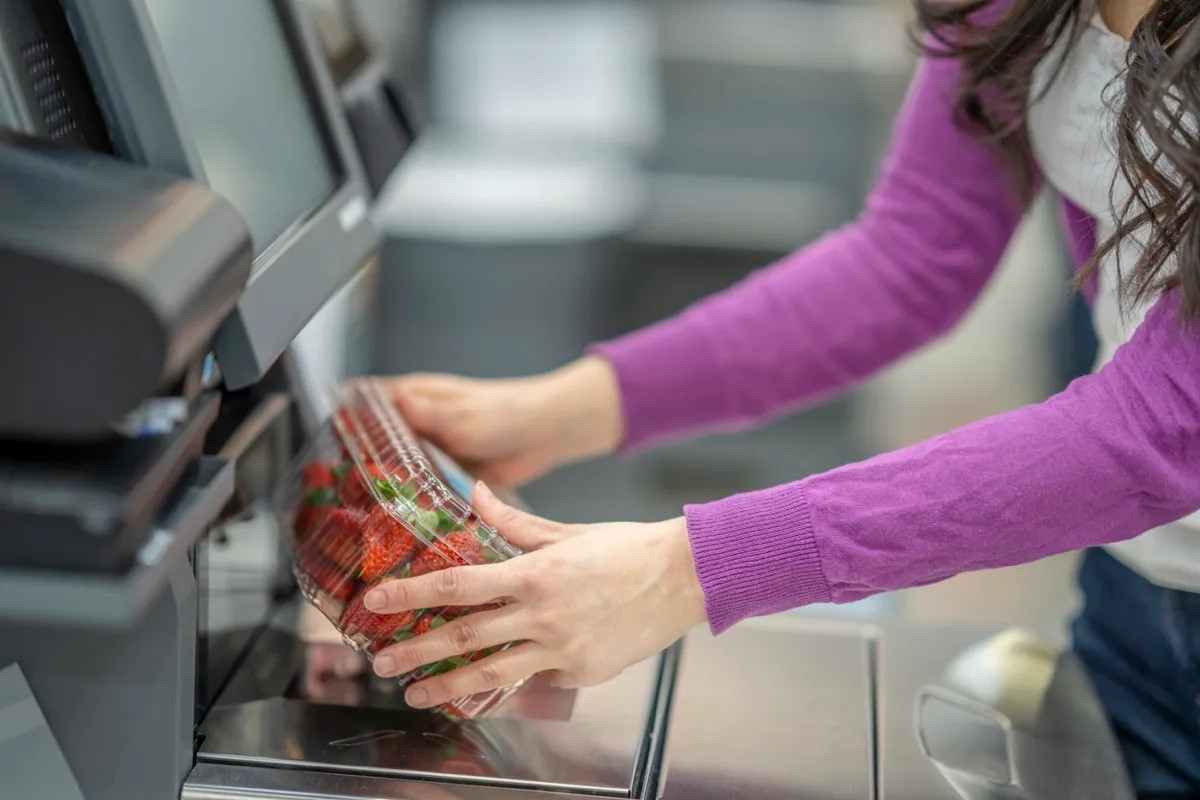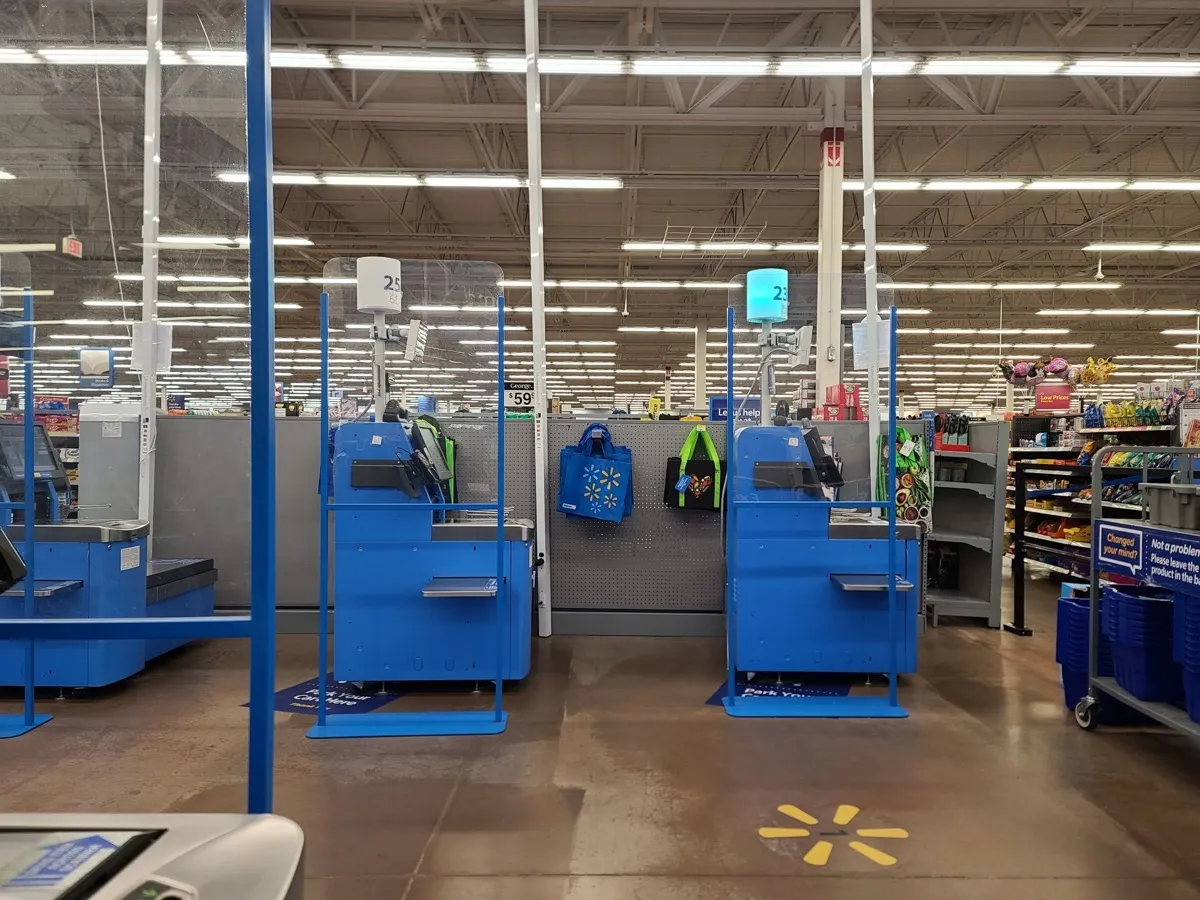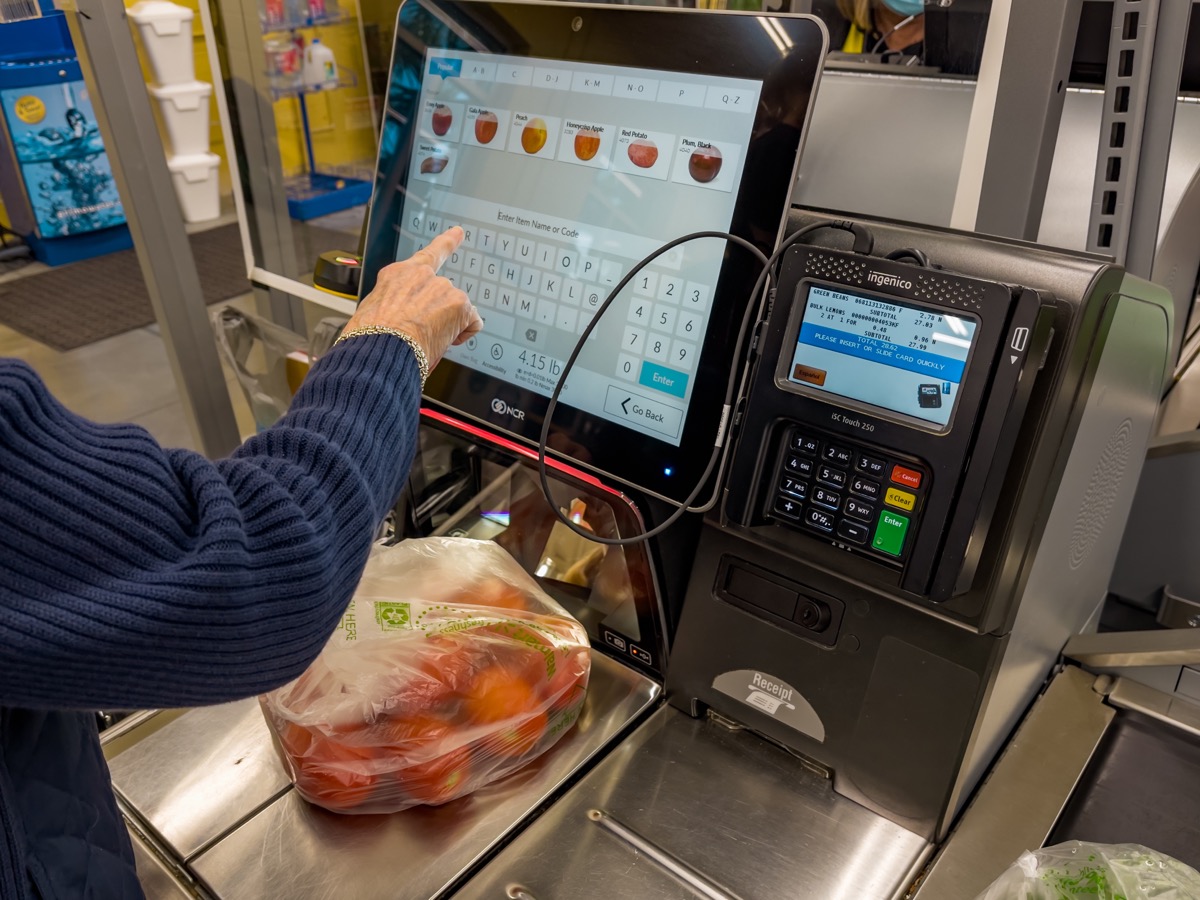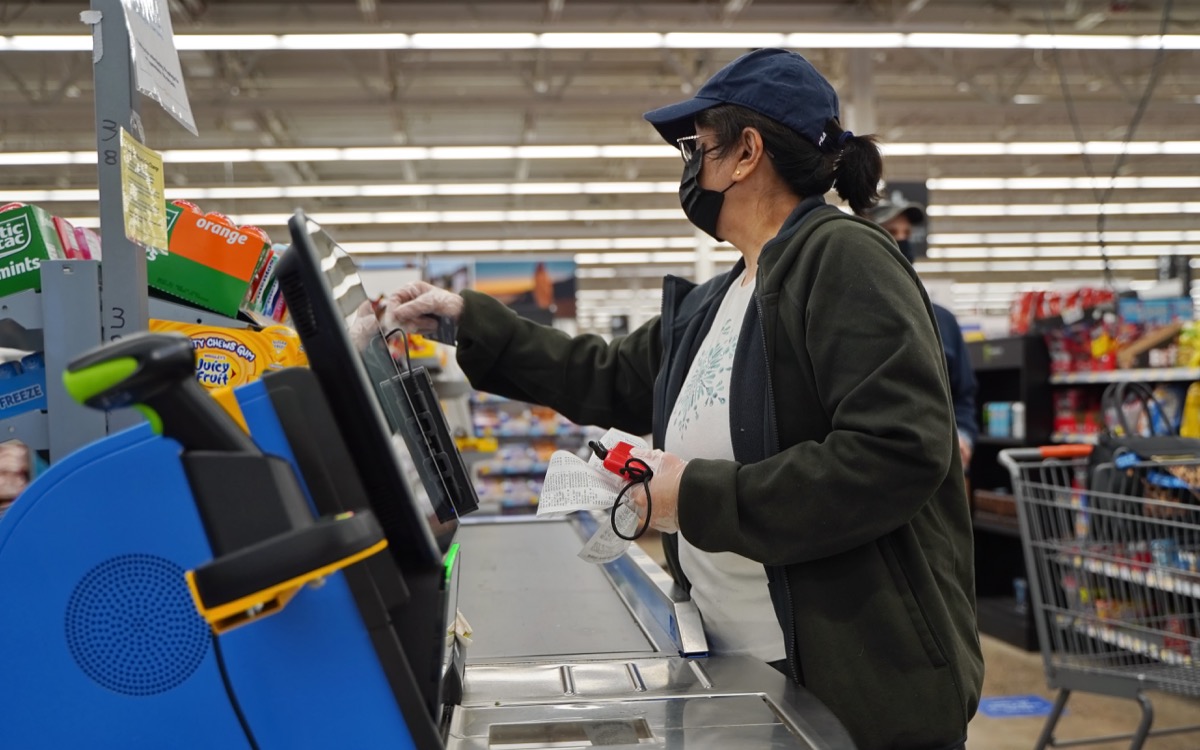Walmart Shopper With Mobility Issues Slams "Excruciating" Self-Checkout Experience
Her multiple sclerosis was severely triggered by a recent incident.

Self-checkout kiosks have been controversial since the day they were implemented. Some shoppers love the convenience, while others find them unnecessary and difficult to use. Even those who appreciate them have their gripes: The machines often glitch, forcing you to wait for assistance and negate any time you might've saved.
"One would expect the self-checkout experience to be flawless [by now]," Sylvain Charlebois, director of the Agri-Food Analytics Lab at Dalhousie University in Nova Scotia, who has researched self-checkout, told CNN. "We're not there at all."
Now, some Walmart customers have a new issue with the machines: They're difficult for those with mobility issues, especially as stores employ fewer clerks to check out customers in a pinch. Read on to see why shoppers are up in arms.
RELATED: Walmart Shoppers Threaten to Boycott Over Self-Checkout Change.
A shopper said self-checkout kiosks are problematic for people with limited mobility.

A Canadian shopper explained to CBC that the self-checkout experience at a Walmart in Edmonton, Alberta, greatly impacted her health. She said there were no cashier lanes open, so she was forced to scan her own items at self-checkout, despite having multiple sclerosis.
"I was in fairly excruciating pain—I was exhausted," she explained of the ordeal. "I went home, and I went to bed with painkillers."
Multiple sclerosis is sometimes considered an "invisible disease" due to the fact that it might not have outwardly visible symptoms. This can lead people, including shop clerks, to not realize someone is in pain or could use help. And pain from multiple sclerosis can be exacerbated by physical exertion, per the Mayo Clinic.
This can be a problem with self-checkout—especially at a store like Walmart, where shoppers might be scanning dozens of items as they complete their weekly grocery run, or gather products for their next DIY project.
RELATED: Walmart Rolling Out Controversial New Shopping Carts: "These Are Terrible."
It's not the first time disability advocates have slammed these kiosks.

This wasn't an isolated incident, and it doesn't just impact those with mobility issues. For many people with disabilities, self-checkout kiosks are challenging—if not downright impossible—to use.
According to a Wall Street Journal report, blind people have difficulty navigating the touch screens, and people in wheelchairs sometimes can't reach the screens or fit their chairs in the space allocated for self-checkout.
In 2018, Walmart came under legal fire when two blind shoppers sued the company after a clerk, who was helping them navigate the self-checkout kiosk, tried to steal $40 from them via cashback. The clerk hoped the shoppers wouldn't notice, but the customers were alerted by an audio feature that said, "Don't forget your cash."
The disability rights lawyer who represented the plaintiffs said the kiosks should be made fully accessible so clerks aren't needed to help.
"In order to be equally effective, it has to be equally independent and equally private," she told the Wall Street Journal. "I go to the self-checkout because I want to buy a lot of cookies, or whatever I'm ashamed of, and I don't want staff to see that. [My clients] don't have that option."
RELATED: Walmart Shoppers Slam "Very Uncomfortable" Self-Checkout Experience.
It's yet another thing people dislike about Walmart's self-checkout experience.

Walmart's self-checkout is fairly unpopular. That became even more true over the summer, when the retailer announced it would start serving third-party ads on the machines.
"If I have to watch a 30s video about an advertisement, I'm just walking out. Maybe with the item lol," a customer posted on X. "Walmart, you can't do this!"
Other customers dislike the feeling of being watched by workers while using the machines. Angela Naff, a writer at The Suncoast Post, recently shared a friend's self-checkout experience, where he said that Walmart employees were standing "about 5 feet" away while he scanned his items.
"They watched me the whole time; what was [I] going to take? An onion, 1/2 gallon of milk, a couple of cans of dog food? I know there are built-in cameras on these registers," he said, per Naff. "I told them I used to be a cashier at Walmart, where I would ring up groceries for customers. I don't appreciate being watched like a criminal!"
RELATED: Lawmakers Are Fighting Against Self-Checkout Kiosks at Grocery Stores.
People are advocating against self-checkout.

Because of these types of issues, and ones surrounding worker's rights, some lawmakers are coming out against self-checkout machines everywhere.
In August, Devon Reid, a council member in Evanston, Illinois, proposed an annual tax for retailers that use self-checkout. He suggested the proceeds go to "training and placement programs" for teenagers in Evanston, since the self-checkout machines eliminate those early career jobs that kids might have gotten had they not been replaced by automation.
Another idea is to give some money back to shoppers.
"Self-checkout is a way grocery stores are avoiding paying employees by getting customers to do cashiers' jobs for free," wrote Democratic representative Megan Cotter in a January press release. "It seems only fair that if they are going to take on cashiers' work, the customer should get something in return."
RELATED: For more up-to-date information, sign up for our daily newsletter.





















